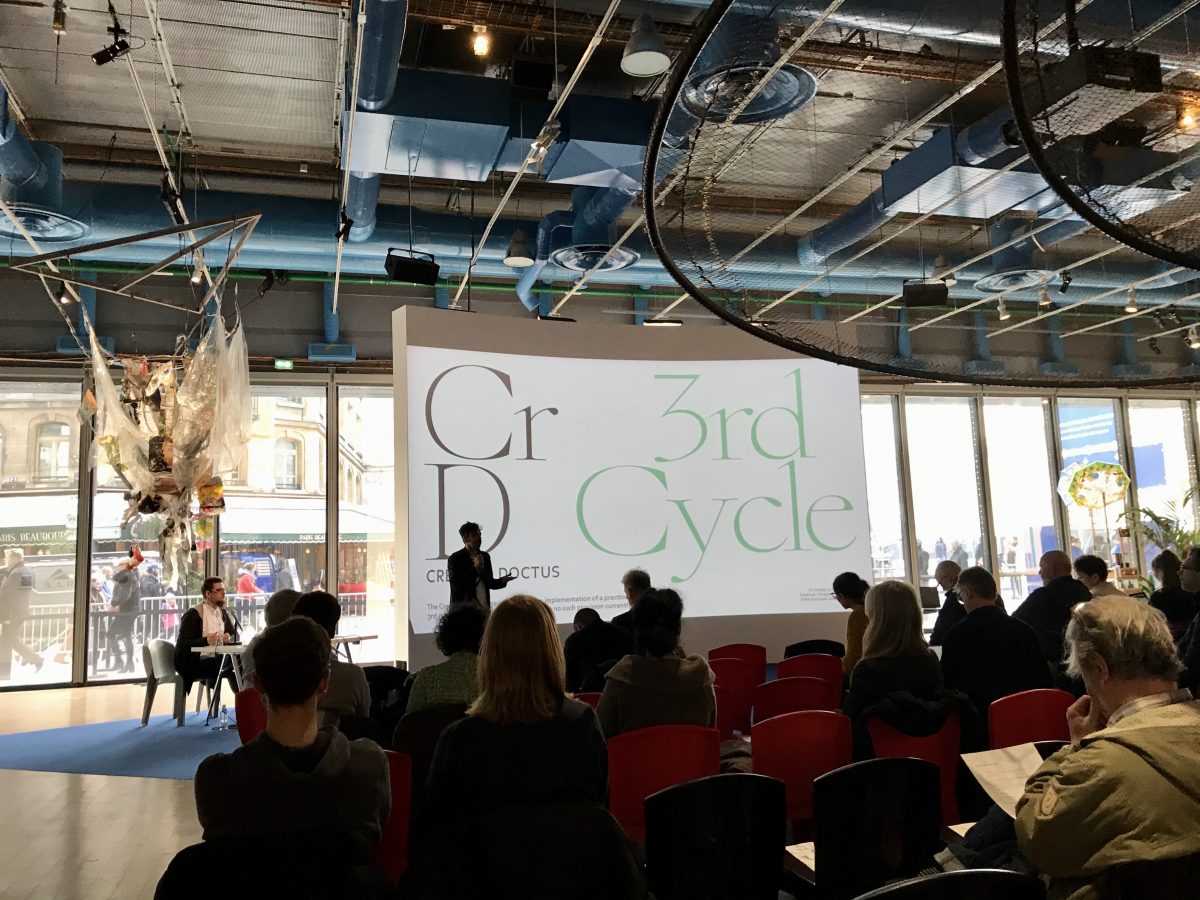On November 29th and 30th, I attended the 2nd Creator Doctus conference, where a consortium of 7 European fine arts academies presented their ongoing work to establish a formal 3rd cycle alternative for the arts. A key element in the presentations is the focus on creating a doctoral programme where artists are allowed to be artists, and not forced to also be academics.
The programme was a mix of artist presentations, organised in collaboration with the conference venue, the Centre Pompidou in Paris, case studies from each of the 7 participants, highlighting where they are in the work of establishing 3rd cycle programmes today, and some overall presentations of the Creator Doctus initiative and their interim report.
The thing that strikes me in the most positive way, is the fact that more countries are now beginning to see the necessity of a fine arts alternative for 3rd cycle education. The «CrD» — Creator Doctus — is being touted as a defined degree which will mark that the recipient has completed a rigorous body of work in the fine arts that qualifies for a 3rd cycle degree. This avoids the problems inherent in attempting to fit the work of artists into the various PhD models that exist.
In Norway the government has established the «ph.d. i kunstnerisk utviklingsarbeid» — PhD in Artistic Research — as a defined alternative for the arts. It is a good thing in that this is clearly defined as being based on artistic output and not academic work, but the use of the designation «PhD» still has the potential to cause confusion both nationally and internationally.
As has happened in previous discussions around artistic research, I find myself very privileged to be working in Norway, where artistic research does not have to be justified as an activity in higher education, but is rather acknowledged in law (if not always in practice) as an activity that is equal to academic/scientific research and there is a funding programme dedicated to artistic research.
I’ve been involved in the artistic research work og the Norwegian Film School since 2010, and have hear many different discussions on the nature of artistic research. As so often before, I am struck by the divide between those who include an academic writing and publishing component in their artistic research 2nd and 3rd cycle programmes, and those who don’t.
I am most definitely on the side of the second group. As I see it, artistic research as an activity belongs to fine arts education; education where the purpose is to train students and PhD candidates in the methods, practice and reflections that belong to their chosen discipline. To put it bluntly, at the Norwegian Film School we train filmmakers by allowing them to make films and to reflect on their process and result in order to become more confident in their abilities to express themselves artistically through the medium of film (and related audio-visual media).
As students move from BFA to MFA, PhD-level, and ultimately become (in some cases) faculty, they should become, not only more experienced artists, but also more expert at reflecting on their process, placing their work in a broader context and sharing their reflections with the broader filmmaking community. And this is the core of artistic research in the academy. It should consist of
- An artistic process, leading to
- An artistic result (ie. a work that meets an audience appropriate to the nature of the work)
- In combination with a critical reflection that explores the relationships and content of the artist’s intentions with the work(s), their choices of methods and process, and the effect of their choices in relation to the final product
- Presented in a way that the critical reflection can become part of the discourse of the professional field of artists working in the field as well as that of the broader artistic community.

